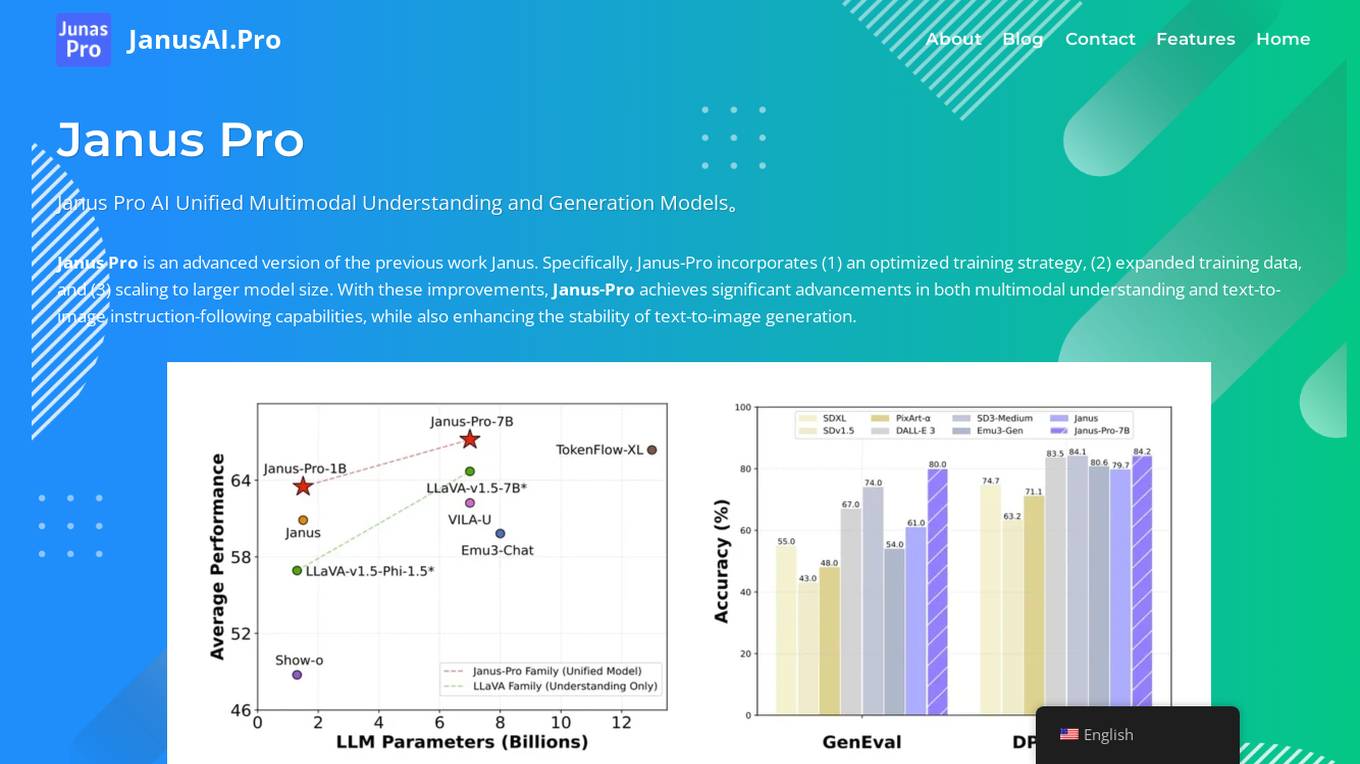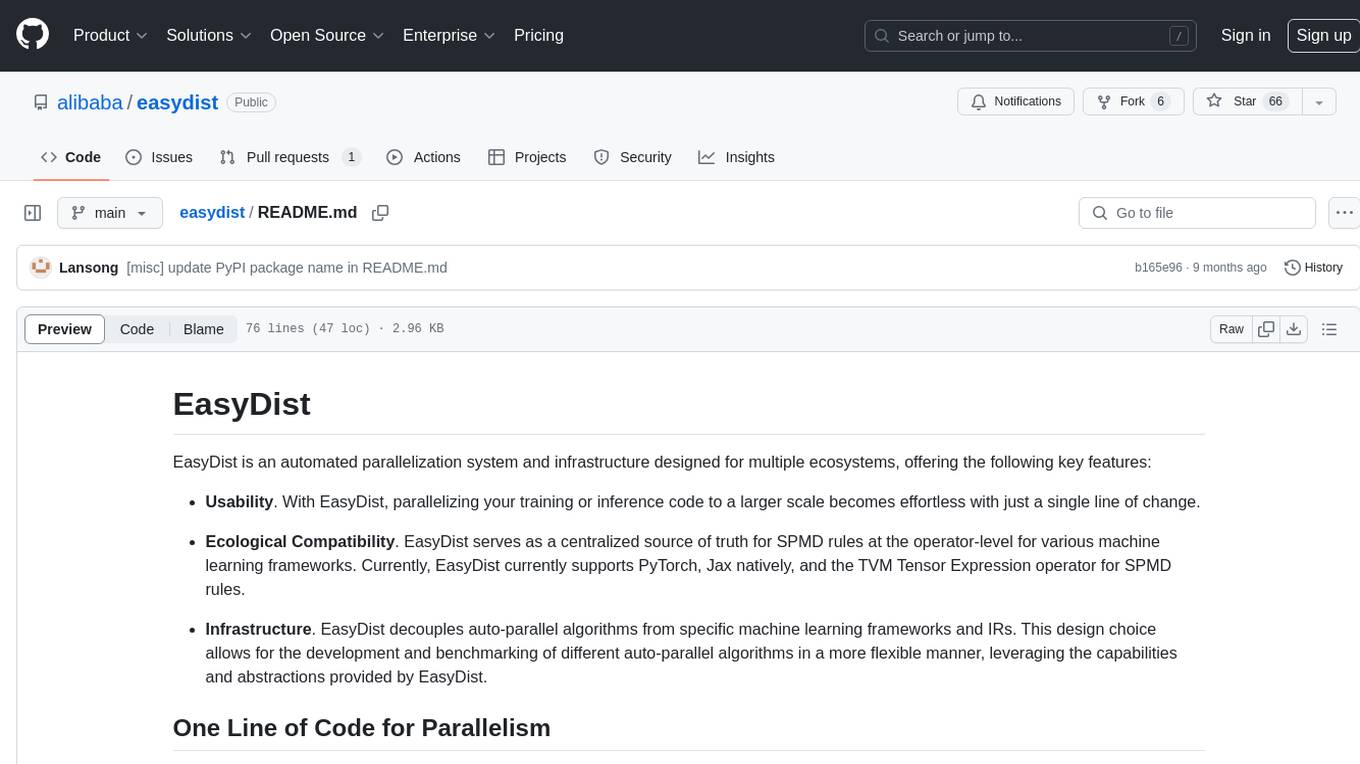Best AI tools for< Decouple Parallelization Methods >
1 - AI tool Sites

Janus Pro AI
Janus Pro AI is an advanced unified multimodal AI model that combines image understanding and generation capabilities. It incorporates optimized training strategies, expanded training data, and larger model scaling to achieve significant advancements in both multimodal understanding and text-to-image generation tasks. Janus Pro features a decoupled visual encoding system, outperforming leading models like DALL-E 3 and Stable Diffusion in benchmark tests. It offers open-source compatibility, vision processing specifications, cost-effective scalability, and an optimized training framework.
1 - Open Source AI Tools

easydist
EasyDist is an automated parallelization system and infrastructure designed for multiple ecosystems. It offers usability by making parallelizing training or inference code effortless with just a single line of change. It ensures ecological compatibility by serving as a centralized source of truth for SPMD rules at the operator-level for various machine learning frameworks. EasyDist decouples auto-parallel algorithms from specific frameworks and IRs, allowing for the development and benchmarking of different auto-parallel algorithms in a flexible manner. The architecture includes MetaOp, MetaIR, and the ShardCombine Algorithm for SPMD sharding rules without manual annotations.